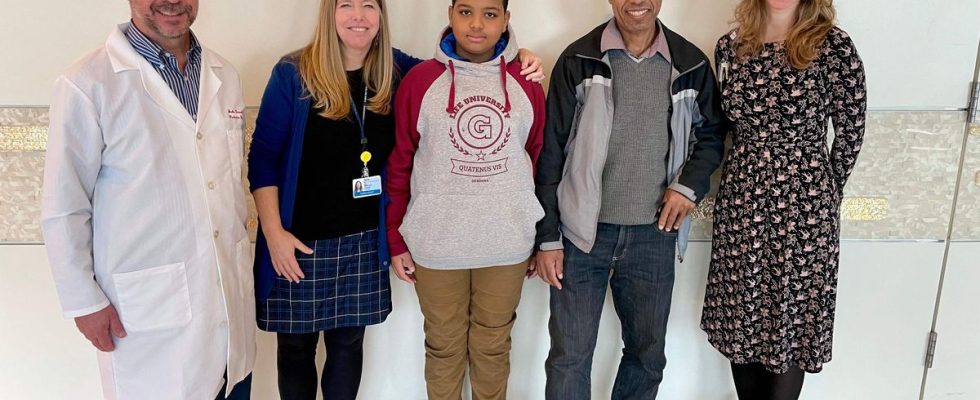It is a medical success in the United States that raises great hope for patients around the world suffering from hearing loss caused by genetic mutations. His father’s voice, the roar of cars, the sound of scissors cutting his hair: an 11-year-old boy hears “for the first time in his life” after a new gene therapy, the children’s hospital announced Tuesday Philadelphia, which carried out the treatment.
Aissam Dam was born “profoundly deaf” due to a very rare abnormality in a single gene. “Gene therapy for hearing loss is a goal that we, as hearing loss doctors and scientists, have pursued for over twenty years. And we’re finally there,” said surgeon John Germiller, director of clinical research in the Division of Otolaryngology (ENT).
Hope for problems in other genes
“The gene therapy we applied to our patient aimed to correct the abnormality of a very rare gene, but these studies could pave the way for future use for more than 150 other genes responsible for hearing loss in children “, also rejoiced the surgeon.
In patients like Aissam Dam, a defective gene prevents the production of otoferlin, a protein needed by hair cells in the inner ear to convert sound vibrations into chemical signals sent to the brain. Abnormalities of the otoferlin gene are very rare and represent between 1 and 8% of cases of hearing loss at birth.
Similar studies underway in several countries
On October 4, 2023, the boy underwent surgery that partially raised his eardrum and then injected the internal fluid of his cochlea with a harmless virus that had been modified to carry working copies of the otoferlin gene. The hair cells then began to produce the missing protein. Almost four months later, Aissam’s hearing has improved to the point where he now has only mild to moderate hearing loss.
Other similar studies with children are underway or about to begin in the United States, Europe and China, some of which have been successful.
Born in Morocco before moving to Spain with his family, Aissam may never be able to speak, as the part of the brain intended for speech acquisition shuts down around the age of five, reports the New York Times.

